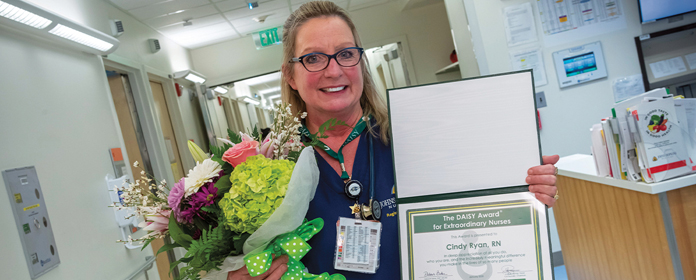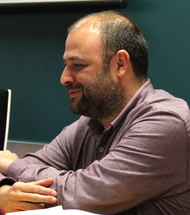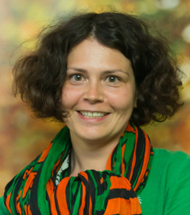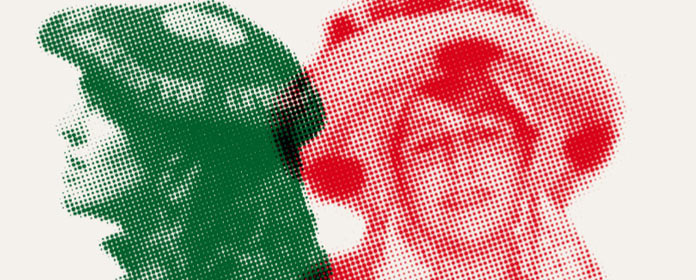“Los mensajes de Whatsapp, Facebook e Instagram son más orales que escritos”, asegura un experto en un workshop del ICS
Ad Backus, profesor de Humanidades y Ciencias Digitales de la Universidad de Tilburg, participó en un congreso internacional sobre textos transicionales

FOTO: Elena Beltrán
Las diferencias entre la escritura y el habla eran claras en algunos aspectos. Antes el habla era inmediata, dialógica e informal, mientras que la escritura era generalmente formal y había una distancia en el el tiempo entre los mensajes. Pero, ¿qué ha ocurrido ahora con la escritura online?
“Estas características están cambiando hoy en día”, explica Ad Backus, profesor de la Universidad de Tilburg, que acudió a un congreso internacional sobre textos transicionales organizado por el Instituto Cultura y Sociedad (ICS) de la Universidad de Navarra. “Cuando escribes ahora mensajes o incluso emails son bastante informales”.
“La escritura en Whatsapp, Facebook e Instagram es más oral que escrita. Cuando se mandan mensajes no se suele tener en cuenta la corrección y la ortografía”, añade. Y para emular el lenguaje corporal y la entonación se usan los emoticonos, apunta el profesor. Por lo que aunque técnicamente es lenguaje que es escrito y leído, es informal como una conversación en muchas ocasiones.
Otra gran diferencia que percibe entre el pasado y hoy es la necesidad de esperar para obtener una respuesta escrita. Con las cartas era necesario esperar, pero con la mensajería digital instantánea se pueden mantener conversaciones. Backus explica que “cuando hablas con un amigo el formato es: yo digo algo, él me responde, yo le contesto y así sucesivamente, llegando a unos 20 o 30 mensajes, por ejemplo”.
Esto suele suscitar un “pánico moral”, se cree que ahora se escribe peor que antes. Backus no está de acuerdo con esta afirmación. “Como profesor veo a mis alumnos escribiendo de manera formal ensayos y redacciones -explica-, y no veo grandes diferencias cualitativas entre ahora y hace 20 años”.
Los emails como carta o como whatsapp“Los emails son el típico texto transicional, se hallan a medio camino”. Para algunas personas han supuesto la sustitución de las cartas mientras que otros utilizan el mail como si fuera un mensaje informal de texto. “Generalmente suele depender de la audiencia que recibe el mail”, detalla.
Uno de los retos que ve es que el emisor y el receptor del correo electrónico se entiendan y tengan la misma actitud sin juzgarse. “Puede ser que mandes un correo informal y el que lo recibe lo vea normal y responda igual, o que tenga una idea diferente de cómo debería ser”. La solución que propone es seguir viviendo prestando atención a cómo evoluciona el asunto.
“Regular la actitud comunicativa es muy difícil porque la gente no quiere que se le diga cómo tiene que escribir un mensaje”. Considera que conforme pase el tiempo irá emergiendo una norma poco a poco que se imponga y sea considerada la forma adecuada de hacerlo.
El congreso en el que intervino Ad Backus se enmarcó en el proyecto ORFORCREA ‘Entre fórmulas: creatividad en los textos poéticos orales y transicionales’, que desarrolla Sarali Gintsburg en ‘Discurso público’ del ICS. Cuenta con financiación del Programa de Investigación e Innovación Horizonte 2020 de la Unión Europea, con una Beca Marie Sklodowska-Curie.





